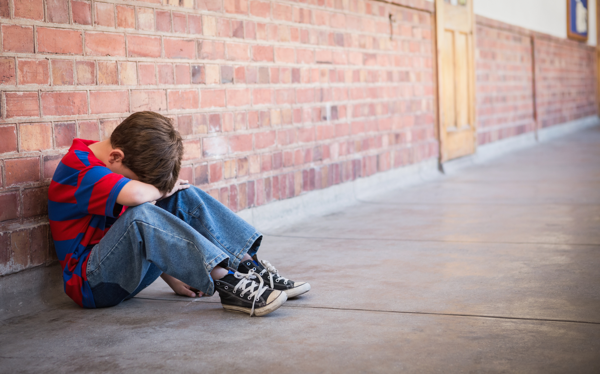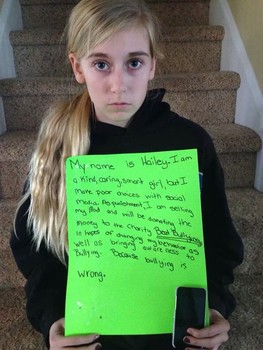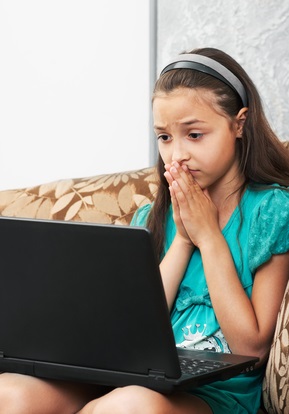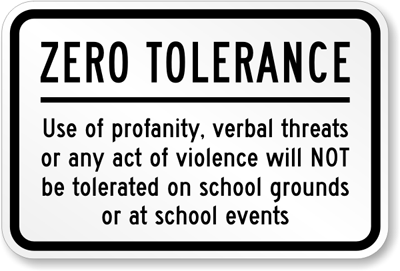To many, bullying is still considered a “soft” form of abuse because there are no visible injuries. After all, only our feelings are hurt.
Read More »The Impact of Cyberbullying on Young Children
There have been extensive efforts in the 21st century to limit bullying, particularly in schools. Parents now understand how detrimental bullying can be for young children and are trying to put an end to it.
Unfortunately, the emergence of the Internet and social media makes this task quite difficult. The anonymity and speed of the Internet makes bullying too convenient. Parents have to constantly be on the lookout as to what their children are doing online and practice mobile and Internet child safety. Simple conversations can quickly turn into inappropriate behavior that can have long-lasting effects on a child's mental health.
Read More »20 High Schoolers Suspended for Retweeting Gossip, Cyberbullying
Is your teen active on Twitter? If so, it's probably a great idea to show this blog post to your high school teen or tween.
20 students at an Oregon High School were suspended earlier this month for retweeting allegations about a female teacher flirting with students. According to the Huffington Post article below, administrators at the school say retweeting the post amounted to a form of cyberbullying, and that the students’ behavior violated the district student handbook, which defines cyberbullying as the "use of any electronic communication device to harass, intimidate or bully."
Read More »Digital Parenting: Is This Bold Parenting Move a Yes or No?
Here is the story of one mother that took to the internet to publicly shame her daughther to teach her a lesson about....publicly shaming. One mother found out her daughter had been cyberbullying peers on the Internet and the following was her response.
This morning, a young girl is getting a taste of the abuse she was apparently serving up to her classmates, thanks to her innovative mother.
Yesterday, reddit user AngryCOMMguy posted a photo (pictured) of a downtrodden young girl holding up a yellow sign. The young girl - who identifies herself as Hailey - is a cyberbully. At least, according to her mother. Apparently, Hailey's mother discovered that her daughter was abusing fellow students (at least we assume it was fellow students and not just some random people), via the Internet. As a result, Hailey's mom decided the best course of action was to have her daughter sell her beloved iPod and give the proceeds to Beat Bullying, a charity that works to combat bullying in all its forms.
Taking a break from this story, I think it's safe to say that this is a time-tested parental move: if your kid acts like a jerk, you take something away from them. Make them feel the sting of their malfeasance.
Would Boycotting Certain Sites That Allow Cyberbullying Be Effective?
Cyberbullying continues to become the individual terrorism of the online world without any end in sight. With the U.K.'s National Society for the Prevention of Cruelty to Children recently citing some sobering statistics, you can also see how much of a worldwide problem cyberbullying has become. In the NSPCC figures, cyberbullies now target one out of every five children online.
Digital Parenting: How to Handle Your Child's Social Media Disaster
Let's hope nothing like what is described below ever happens to your child, but if it does, here is some advice and tips from author, Jason P. Stadtlander. This article was orginally published on The Huffington Post.
In my last article, "Your Child: A Sheep Among the Wolves," I discussed the dangers today's parents are facing with the Internet and child predators. Today, I would like to focus on some of the more daunting questions dealing with what a parent can do when preventive measures are too late.
The case with Hannah Anderson and the Irish 17-year-old that was cyber-bullied after an Eminem concert are prime examples of children and social media run amuck. Anderson should never have had access to electronic devices until she and her family had time to grieve together and the Irish teen... well, I don't even know where to start there.
"I Was Jailed for Cyberbullying"
Read the account from the first British person to be jailed for cyber bullying She speaks of her regret at posting a death threat online.
Keeley Houghton, 18, was sent to a young offenders' institute for three months in 2009 after writing on a social networking site that she was going to "murder" a fellow teenage girl.
The incident happened after an ongoing feud with Keeley's victim. Keeley said she she attempted to apologize to the girl on the night before she posted the message, but says her victim wouldn't listen.
"It was understandable, but I was so angry, even through to the next day," Keeley recalled on This Morning today (12 September).
"I was sat with a friend at my house and I wrote what I wrote. I don't even know what I was thinking. I didn't think she would see it. I wasn't friends with her on the social networking site."
Keeley, who is now a reformed character, removed the message within 24 hours and explained: "I knew it was wrong. I thought about it and thought, 'No, I shouldn't have written it'. So I just took it down.
"I don't know why I said it. It wasn't a threat I was going to go through with, it was just something I wrote at the time."
Zero Tolerance for Cyberbullying in School
Do you know what your school's policy is on bullying? Every school has one, but policies vary from district to district in how cyberbullying is defined and how it is punished.
Although there are almost as many types of policies as there are schools, a popular one is the zero tolerance policy. “Zero tolerance” means that any and all violations of the policy is grounds for the harshest punishments a school can dole out: namely suspension and expulsion.
Zero tolerance policies used to be reserved for bringing drugs or weapons to school, two offenses that require the removal of the offending student because he or she is endangering the whole student body.
Your Teen’s Online Reputation: Keep It Positive. Keep It Safe
Online reputation is everything to teens, especially when their social lives exist almost entirely online. Much of what teens do and say online is guided by their need for acceptance among their classmates and other peers. But with the ever-changing nature of the Internet, what happens when a teen’s reputation gets away from them and seems to take on a life of its’ own?
Without proper management, just a few simple mistakes posted online could follow your teen years down the road, and even affect potential employment opportunities. While there are many things you and your teen can do to keep their online name in good standing, here are the top three things we think are important:










